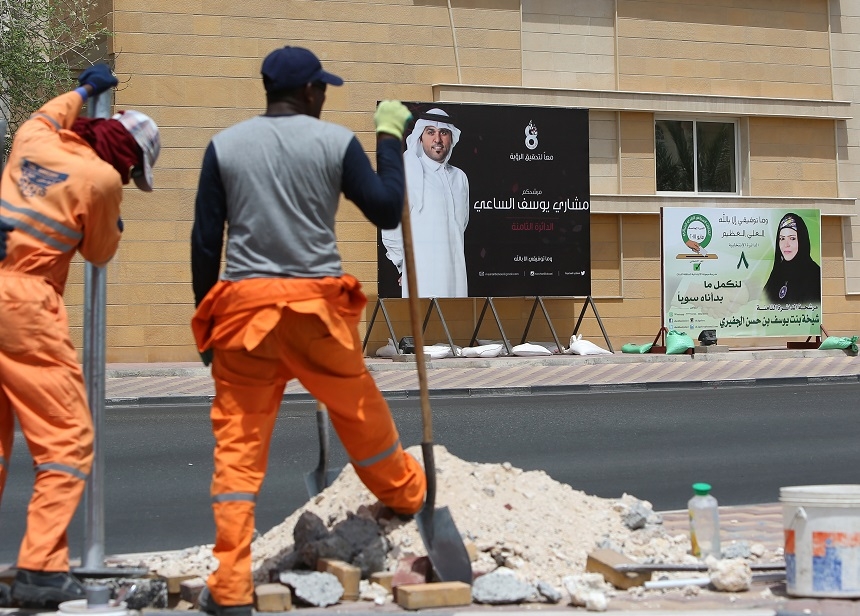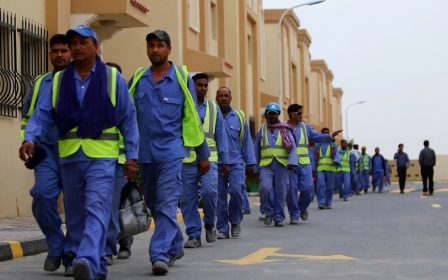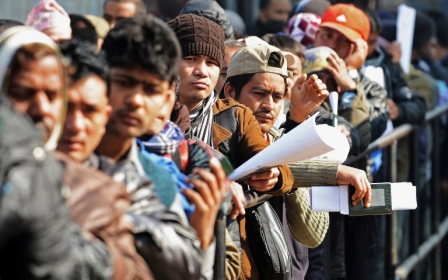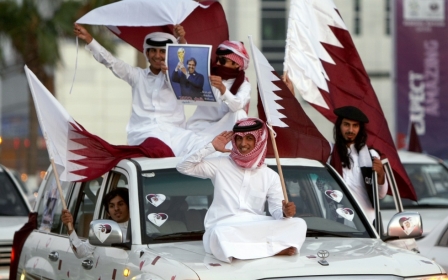Female candidates hope to break through tribal barriers in Qatar vote

Female candidates in Qatar’s only directly elected body are hoping to make at least some gains when Qataris go to the polls on Wednesday.
Five women are currently on the ballot for the municipal council but make up only a fraction of the 118 candidates running in 2015. In 2011, only one woman was elected, with less women standing today than when polling was first introduced 16 years ago.
Tomorrow’s election for the 29-seat municipal council is only the fifth time there have been direct elections in Qatar, with elections to the council taking place every four years, beginning in 1999.
The council is tasked with monitoring the implementation of laws in urban areas as well as economic and administrative management of agricultural zones but has little real power.
More than 23,000 people registered to vote on Wednesday, less than last year when 32,662 did so - representing only a fraction of Qatar's local population of about 280,000.
The gender imbalance in the council however is not representative of the electorate, which is pretty evenly split between men and women.
"It would be very disappointing if again only one female candidate won this time," one of the hopefuls, Amal Issa al-Mohannadi told AFP.
Election fever is hardly sweeping the country, but in the streets of the capital Doha the candidates' posters are hung on hundreds of lampposts, alongside promises to improve services in their respective constituencies.
Wearing a niqab covering her face, Mohannadi added: "I am running for the second time despite all the challenges."
Mohannadi, a computer engineer who is studying for a PhD in public administration, said she is motivated this time because at the last vote she outpolled more than seven male rivals, but lost out to an eighth.
"I came second," she said. "If it were not for a tribal meeting in which they decided to vote for the male candidate, I would have been the winner. Without a quota for women, the challenge is huge."
Qatar, she added, is "a conservative society still inclined to vote in favour of the candidate son of the tribe and believes a male candidate is best able to deliver a voice, no matter if he is efficient or not".
'Need quota for women'
Fatma Yusuf al-Ghazal, a retired school principal who is running for election for a second time, said the problem was not in getting women to stand, but the traditional way of voting along certain allegiances.
"There are no political barriers to run for the election," she said.
"On the contrary, the country encourages women to practice their political right, but the problem is in the tribalism and voting for the family. We need a law amendment to allow a quota for women," she said.
When the elections were first established, the Qatari authorities also set up a committee to look at ways to encourage women to vote and stand for election.
One woman who has broken new political ground in that time is Sheikha Jufairi, the only female candidate elected last time round, who first won a seat on the council in 2003. She has managed to hold onto it ever since, but plays down the role of gender.
"It's not a matter of male or female, it depends on one's efficiency and continuous contact with people," she said.
"I keep contacting people to encourage them to go to the polls and vote, it's a national duty."
Voting may be a "national duty" to Jufairi but poor turnout - last time it was a little over 43 percent - suggest other Qataris do not share her view.
One reform that could increase voter participation is to give the council powers - it plays only an advisory role, making recommendations but has no legislative authority.
"The municipal council needs more executive powers," said Ghazal.
Voting is limited to Qataris aged 18 and over, even though locals make up just over 10 percent of the population (around 280,000 people). There have been some calls to increase turnout by extending the franchise to non-Qatari residents, though Mohannadi says the vote should be kept to Qataris.
Qatar has been widely criticised for its treatment of migrant workers, especially ahead of 2022 World Cup that is taking place in the kingdom, despite widespread concerns about workers’ rights.
Last week, a team of German journalists probing the allegations of abuse were detained by Qatari police and intelligence services for their documentary on the country's FIFA 2022 World Cup bid. Qatar claims it has nothing to hide and is working to implement reforms.
New MEE newsletter: Jerusalem Dispatch
Sign up to get the latest insights and analysis on Israel-Palestine, alongside Turkey Unpacked and other MEE newsletters
Middle East Eye delivers independent and unrivalled coverage and analysis of the Middle East, North Africa and beyond. To learn more about republishing this content and the associated fees, please fill out this form. More about MEE can be found here.




